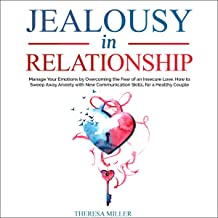Pathological-Morbid Jealousy
Pathological jealousy, also known as morbid jealousy, Othello syndrome or delusional jealousy, is a psychological disorder in which a person is preoccupied with the thought that their spouse or sexual partner is being unfaithful without having any real proof, along with socially unacceptable or abnormal behaviour
Cluster Number:
Wiki Number: PW125
Diagnosis: Morbid or Pathological Jealousy
US Patients:
World Patients:
Sex Ratio:
Age Onset:
Brain Area:
Symptoms: thinking a partner is unfaithful with no proof, but carrying jealous actions. Shakespeare’s “Othello” kills his wife in a jealous rage.
Progression: thoughts become obsessive; believe the partner is taking sexual stimulants or unfaithful during (his) own sleep, older men –
Causes: Triggered by sexual infidelity in men; emotional infidelity in women. Muslim “honor killings” of family are not mentioned.
Medications:
Therapies:
Youtube Video: Pathological Jealousy
Amazon or Library Book: Jealousy in Relationship
Click the book to link or order from Amazon.

